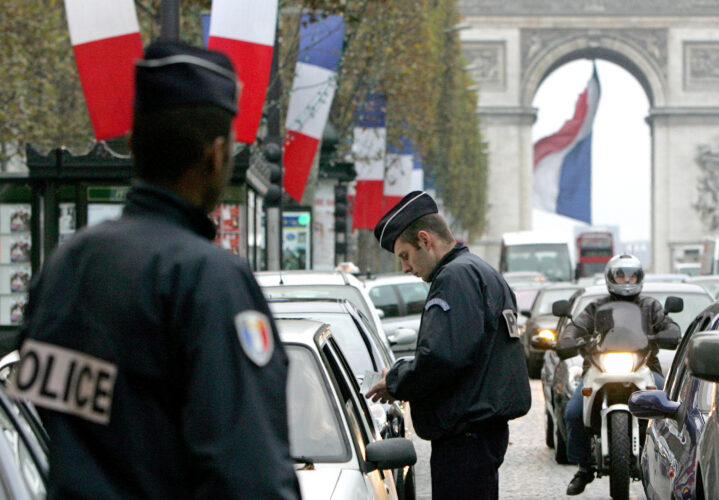French police received authorization to remotely activate citizens’ cell phone cameras, microphones, and GPS after lawmakers adopted a wider justice reform bill on Wednesday. Lawmakers passed the controversial legislation as France experiences ongoing riots due to the fatal shooting of a teenage boy by French police.
Check out the latest military line of merchandise today in the Valuetainment store!
As concerns around increased government surveillance develop, French citizens criticized the new bill as a means for police to have “unfettered access to location of its citizens.” Protests swept the country after the shooting with demonstrators frequently clashing with French police. French President Emmanuel Macron threatened to shut down social media platforms, claiming that protestors are filming, posting, and organizing on apps like TikTok, Snapchat, and Telegram. The riots are to enter a two-week mark as France remains unsettled.
“We need to reflect on social media use among the youngest [and] on the prohibitions we must put in place,” Macron told 300 local leaders in a video seen by French and international media. “When things get out of hand, perhaps you have to put yourself in a position to regulate or cut them.”
The “spying provision” was at the center of opposition from both right and left-leaning defenders who called it an “authoritarian snoopers charter.” However, Justice Minister Eric Dupond-Moretti insisted “it would affect only “dozens of cases a year.” The geolocation authorization reportedly only applies to suspects in crimes punishable by a minimum of five years in jail and would be limited to a maximum of six months.
In a tweet posted last month by the French advocacy group La Quadrature du Net, “For organized crime, the police can have access to the sound and image of a device. This concerns any connected device: telephone, speaker microphone, computer camera, computer system of a car… all without the knowledge of the persons concerned. In view of the growing place of digital tools in our lives, accepting the very principle that they are transformed into police auxiliaries without our being aware of it poses a serious problem in our societies.”
Examples of expanding government surveillance in France include reports that the NSO Group, an Israeli cyber-intelligence firm known for it’s proprietary spying software — Pegasus, provided their services to the French government. The spyware was allegedly misused to spy on dissidents, activists, and even politicians.
Despite the reports and citizens’ concerns, French legislators maintain that the bill has a narrow focus and government overreach won’t occur.


















Add comment